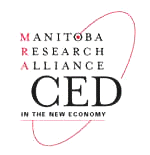This report researches the benefits and drawbacks of three alternative food production and farm marketing models: community shared agriculture; The Winnipeg Humane Society Certified labeling program for dairy and meat products; and the Direct Farmer Market Retail Program. These models, all of which have been implemented on at least a trial basis in Manitoba, have the potential to provide greater self-sufficiency to producers in Manitoba, while increasing local food security by providing fresh local food to the consumer. They also offer potential environmental benefits by reducing the distance food travels “from gate to plate” and, where organic practices are in place, reducing the use of synthetic chemicals, growth hormones and genetically modified organisms. The report concludes with a number of recommendations that would benefit small farms and farm communities, enhance environmental sustainability, and make Manitoba more food-secure. As Manitoba currently does not have a provincial food-security policy, many recommendations deal with changes to provincial government policy.
Manitoba Alternative Food Production & Farm Marketing Models
ORGANIZATION:
Manitoba Research Alliance on CED in the New Economy,
Author +
Kreesta Doucette and Glen Koroluk
Year: 2005





